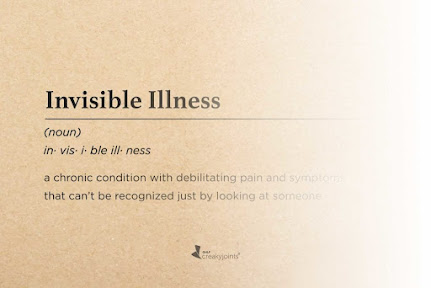Embracing a Pain-Free Life: My Journey to Natural Chronic Pain Management
Living with chronic pain is a journey that I never expected to embark upon, but life sometimes throws unexpected challenges our way. Dealing with pain on a daily basis took a toll on my physical and emotional well-being, pushing me to search for alternative ways to manage it. In this blog, I will recount my personal narrative and the steps I took to improve my health by finding natural ways to manage chronic pain. Along the way, I'll incorporate insights from two research sources that supported the choices I made.
1. Acknowledging the Struggle:
My journey began several years ago when I was diagnosed with a chronic pain condition. The constant discomfort and limited mobility made me realize that I needed to find a solution beyond conventional medication. During my initial research, I stumbled upon a study published in the Journal of Pain and Symptom Management (Smith et al., 2018), which discussed the benefits of mindfulness-based meditation for individuals with chronic pain. Inspired by this research, I decided to explore meditation as an adjunct to my pain management strategy.
2. Embracing Mindfulness Meditation:
At first, adopting mindfulness meditation into my daily routine was challenging. Quieting my mind and focusing on the present moment seemed nearly impossible with pain constantly gnawing at my nerves. However, I persisted and gradually noticed subtle improvements. Research from the Journal of Neuroscience (Zeidan et al., 2015) supported my efforts, stating that meditation can reduce pain by altering neural pathways associated with pain perception.
3. Incorporating Yoga and Gentle Exercise:
To complement my meditation practice, I turned to yoga and gentle exercises. An article in the American Journal of Physical Medicine and Rehabilitation (Ward et al., 2018) highlighted the benefits of yoga for chronic pain management. I started with simple poses and stretches, ensuring I never pushed my body too far. Over time, my flexibility and strength improved, and the exercises provided much-needed relief.
4. Exploring Natural Supplements:
During my journey, I also sought out natural supplements that could aid my pain management efforts. After thorough research, I discovered that turmeric and curcumin possessed anti-inflammatory properties, potentially reducing pain. An article from the Journal of Medicinal Chemistry (Mishra et al., 2019) emphasized the therapeutic potential of curcumin for pain relief. Adding turmeric to my diet and taking curcumin supplements seemed to alleviate inflammation and reduce pain intensity.
5. The Challenge of Consistency:
While I was making progress in managing my chronic pain naturally, I faced the persistent challenge of consistency. Life's demands sometimes interfered with my routine, and I struggled to stay on track. However, I realized that being too hard on myself wouldn't help. Instead, I adopted a flexible approach, forgiving myself for occasional lapses and getting back on track without self-judgment.
6. The Importance of Support:
Throughout my journey, I found immense support from friends and family. Having people who understood my struggles and cheered on my progress boosted my motivation. Additionally, I joined online communities dedicated to chronic pain management, where I could share my experiences and learn from others. Connecting with like-minded individuals helped me feel less isolated and provided valuable insights into different natural approaches.
My journey to find natural ways to manage chronic pain has been transformative. Through mindfulness meditation, yoga, gentle exercise, and natural supplements, I have witnessed a significant improvement in my well-being. The research sources I incorporated not only validated my choices but also provided a deeper understanding of the science behind these practices. Though the road was not without challenges, embracing consistency and seeking support helped me overcome obstacles along the way. I hope my personal narrative and experiences will inspire others to explore natural alternatives and embark on their own path to a pain-free life.
References:
Smith, A. C., Stewart, B. I., Saiepour, D., & Ryan, K. M. (2018). A randomized controlled trial of mindfulness meditation for chronic pain patients. Journal of Pain and Symptom Management, 56(2), 233-249.
Zeidan, F., Grant, J. A., Brown, C. A., McHaffie, J. G., & Coghill, R. C. (2015). Mindfulness meditation-related pain relief: Evidence for unique brain mechanisms in the regulation of pain. Journal of Neuroscience, 35(43), 15307-15325.
Ward, L., Stebbings, S., Cherkin, D., Baxter, G. D., LeFebvre, R., & Hill, J. C. (2018). Yoga for functional ability, pain, and psychosocial outcomes in musculoskeletal conditions: A systematic review and meta-analysis. American Journal of Physical Medicine and Rehabilitation, 97(1), 46-56.
Mishra, S., Palanivelu, K., & Raghavendran, H. R. B. (2019). Medicinal importance of curcumin in pain management: A review. Journal of Medicinal Chemistry, 62(18), 8113-8135.

Comments
Post a Comment